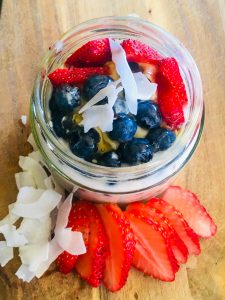Urinary tract infections. Painful, uncomfortable and unfortunately pretty common.
Whilst women tend to suffer them the most, they can also occur in men (especially older men) and I have worked with many children suffering urinary tract infections as well. In many cases these infections become reoccurring, with a woman or child suffering infection after infection, leading to them getting stuck on the antibiotic merry-go-round.

I’ve discussed the vaginal microbiome in a previous post and you can read about it more if you like. Suffice to say one of the biggest contributors to urinary tract infections (UTI’s), especially recurrent ones, is vaginal dysbiosis or an imbalance in the vaginal microbiome. Not enough “good” bacteria can mean “baddies” such as E coli (a common bacteria responsible for causing UTI’s) can take hold. Other risk factors include poor bladder emptying, use of spermicide, higher frequency of sexual intercourse, new sexual partners and pregnancy. Catheters, incontinence, diabetes, structural variations and any health condition that suppresses the immune system can also increase risk.
Dealing with infections
When it comes to acute infections it’s important to act quickly, and the frequency of dose is paramount. Remedies will often be dosed at regular intervals until symptoms start to subside. Herbal formulas are designed on a case by case basis and would often include support for the immune system as well as herbs with urinary antiseptic, urinary demulcent (soothing) and diuretic activity.
D-mannose is a small monosaccharide (simple sugar molecule) that when ingested is absorbed but excreted intact (meaning we simply pee it out again). It’s believed to have an affect on E.coli based infections by binding to E.coli and preventing the bacteria from attaching to the bladder wall.
“A stitch in time saves Nine”
Prevention is always better than cure and this is certainly the case when it comes to UTI’s. Thankfully we have certain natural agents at our disposal that have shown evidence for preventing UTI’s in those susceptible to their painful hold. Lactulose is one of my go-to agents for prevention. There have been several studies on this prebiotic being used to help prevent recurrent UTI’s.
Certain species of good bacteria (probiotics) have also been shown to help prevent UTI’s and to support the microbiome of the vagina. This isn’t the case for every strain of bacteria so it’s important we’re choosing the right one for the job at hand. The strains I choose for each patient depend on what the driving forces are for them but will often include:
* L rhamnosus GR-1 and L fermentum B-54
* L rhamnosus GG
* L acidophilus NAS
* L acidophilus La5
* L fermentum RC-14
Cranberry (Vaccinium Macrocarpon) is another herb with evidence for reducing the incidence of urinary tract infections when taken as a preventative. It’s believed the proanthocyanidins in cranberry prevent E.coli adhering to cells and causing an infection. Quality counts here and as sugar can reduce immunity, I don’t suggest sweetened cranberry juice as the ideal way to add cranberry to your preventative regime.
Working with your natural treatment:
- Stay hydrated (I know it’s hard when it hurts to pee but drinking plenty of water can really help to flush it all through.
- Emptying your bladder regularly, especially when you feel the need. Try what’s called double voiding (which is going to the toilet again 5-10 minutes later).
- Avoid additional bladder irritants (caffeine, alcohol, spicy foods, artificial sweeteners, spicy food and citrus)
- Always go to the toilet after intercourse.
- Females wipe from front to back when going to the toilet (while we know bacteria can migrate on their own it can’t hurt to practice this extra hygiene tip)
What about the susceptible Child?
I approach supporting children with UTI’s in a similar way to adults- looking at the microbiome of the gut (and vagina in girls) as well as the health of their immune system. Of course not all of the above is suitable for children so seeking support from someone experienced in working with children is paramount. Certain herbs aren’t appropriate for children and major adjustments to dose need to be done based on a child’s age and weight.
When it comes to supporting UTI’s naturally there is so much support available to you through working with a qualified Naturopath (myself included of course). However there are a few red flags to watch out for. I encourage all of my patients to seek medical advice from their GP if any of the following occur: fever, blood in the urine, sudden incontinence, obstruction of the flow of urine or severe pain. The bacteria causing a UTI can migrate up and affect the kidneys, becoming a much more serious infection.
If you feel you would like some personalised support for yourself or your child around urinary tract infections, feel free to get in touch and book an appointment to meet with me in person.
Share the love

About Sandi
Sandi Cooper is an experienced Naturopath working in clinical practice for almost two decades. Her clients love her down-to-earth approach and her naturally caring qualities. Although Sandi is experienced in most areas of clinical practice, she has a special interest in children’s health and nutrition, working with parents to get the best outcomes for their children.




